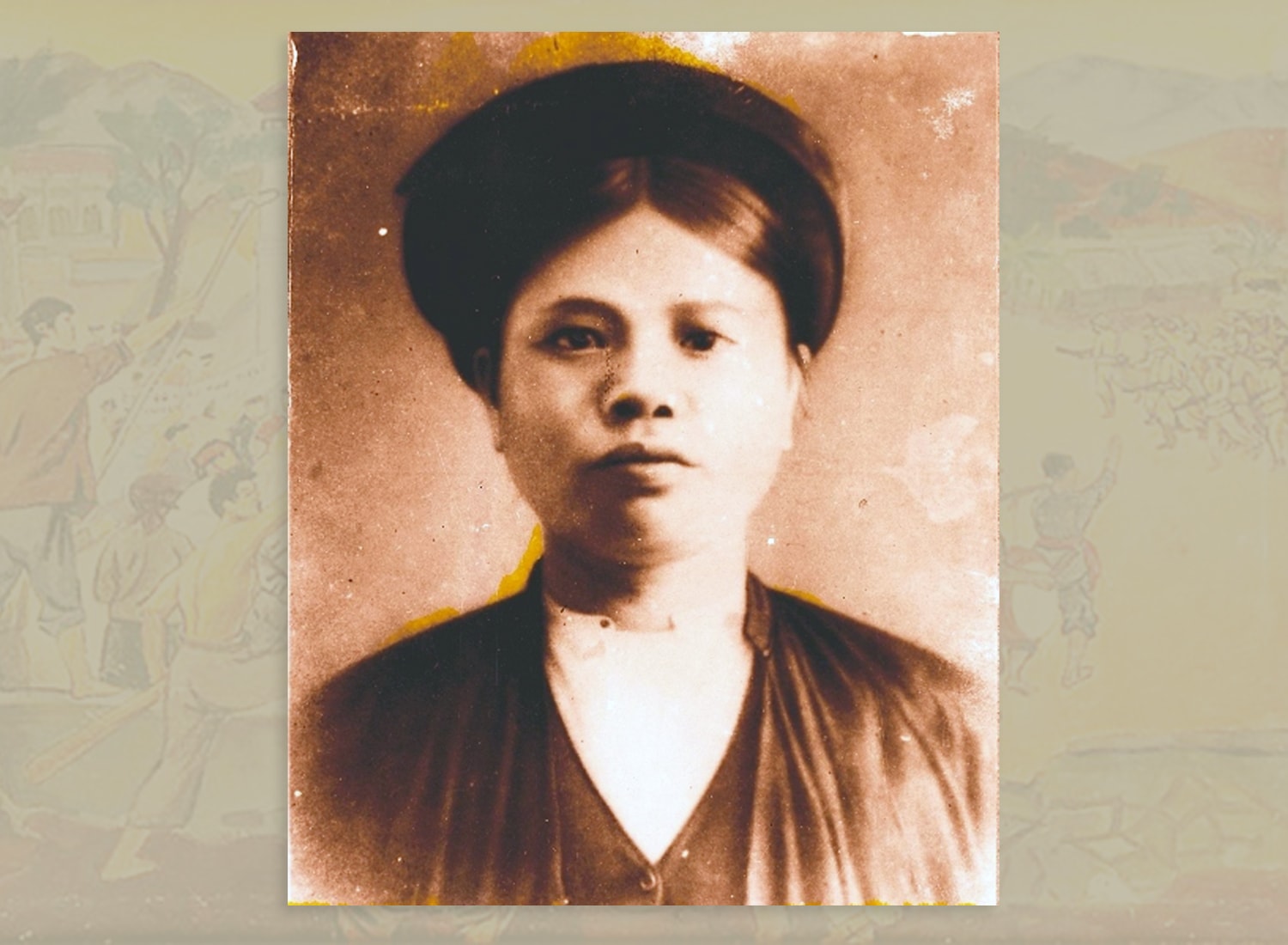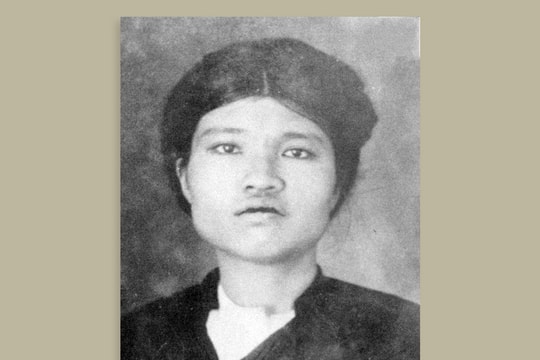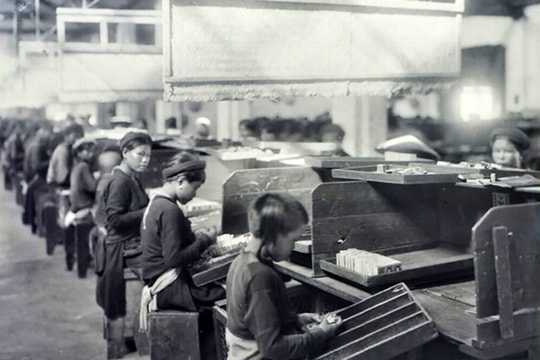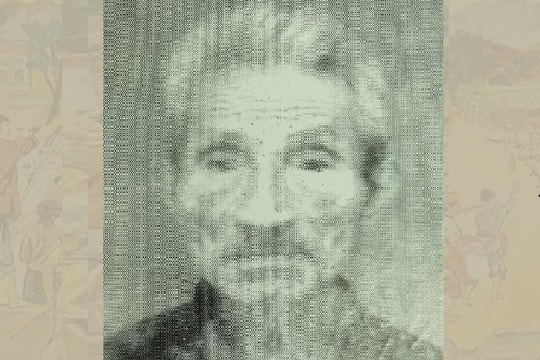Comrade Nguyen Thi Nghia - a staunch communist, an excellent female traffic and communications soldier of the Central Region Party Committee
During the Nghe Tinh Soviet movement of 1930-1931, thousands of cadres, party members and masses who participated in the revolution heroically sacrificed their lives for the cause of national liberation. Many people passed away at a very young age, when many plans, dreams and ambitions had not yet been realized, among them was comrade Nguyen Thi Nghia.
Nguyen Thi Nghia's real name is Nguyen Thi Hen, born in 1909 in An Thi district, Hung Yen province. Born and raised in a land rich in tradition, having to witness the miserable life of enslaved people every day, Nguyen Thi Nghia was soon aware of the responsibility of a patriotic youth. She enthusiastically read all kinds of progressive documents and books at that time. At the age of 20, she joined the Vietnam Revolutionary Youth Association and actively participated in patriotic activities. Implementing the "proletarianization" program, she applied to work as a worker at the Hai Phong Bowl Factory, then at the Nam Giem Brick Factory - Hanoi. During her time living and working with workers in the factories, she actively propagated the revolution, popularized progressive ideas to her brothers and sisters, and at the same time discussed with them the hardships of women living under the feudal colonial regime. After enlightening them, she mobilized and led the workers to stand up and fight against the factory owners to demand higher wages, shorter working hours, and to fight against beatings, fines, and dismissals. Through these struggles, the workers' patriotism and sense of national liberation were clearly raised. Her activities were gradually monitored by secret police, who informed the owners to expel her from the factory.

In 1930, comrade Nguyen Thi Nghia was honored to join the ranks of the Communist Party of Vietnam. At this time, the revolutionary movement in Nghe Tinh was developing strongly. In particular, workers and farmers had close coordination, creating a strong wave of struggle to threaten the enemy government. Comrade Nguyen Thi Nghia was assigned by the organization to Nghe Tinh, directly working in factories in Vinh - Ben Thuy to propagate and mobilize workers. Promoting the experiences when working in factories in Bac Ky, in Vinh, Nguyen Thi Nghia often went close to the workers, clearly understood the workers' aspirations, analyzed to show them the need to fight for the revolution to liberate themselves. All the Party's policies and guidelines were disseminated by her in a flexible and timely manner. She coordinated with comrades such as Le Viet Thuat,Le Mao,Le Doan Suu... led the workers to fight against the factory owners, organized the distribution of leaflets supporting the struggles of the people of Nghe Tinh, and coordinated with farmers in Nghi Loc and Hung Nguyen districts to demonstrate to demand the French colonialists to implement their demands. During the revolutionary movement of 1930-1931, the work of communication received special attention from our Party. In addition to public communicators, Party cells also prepared secret reserve communicators to deal with when the enemy's terror became more fierce. Right at the Central Conference in October 1930, our Party also issued a Resolution: "The upper and lower Party committees must always be in close contact so that the Party and the masses will not be far apart. We must organize many ways of communication so that the far-flung Party committees can quickly and professionally exchange information."(1).
From mid-1930, the Nghe Tinh Soviet movement was bloodily suppressed by the French colonialists.
The problem at this time was the need for close direction from the Central Committee for the Nghe Tinh revolutionary movement and the need for excellent, tested traffic officers. In that situation, comrade Nguyen Thi Nghia was entrusted by the organization with the task of special communication between the Central Committee and the Central Party Committee, specifically the Vinh - Hanoi route. This was an extremely dangerous job that required intelligence, creativity and courage. At this time, the enemy controlled very strictly. Comrade Nguyen Thi Nghia had to disguise herself in many flexible ways to overcome the enemy's surveillance. She had to pretend to be the concubine of Le Doan Suu - Member of the Vinh - Ben Thuy Provincial Party Committee Executive Committee, in charge of the peasant movement in Hung Nguyen and Nghi Loc to bring secret documents to a safe place for the Party organizations.
During a business trip from Vinh to Hanoi, comrade Nguyen Thi Nghia was surrounded by the enemy. Knowing that she was a dangerous target, they used all means to interrogate her in order to find out her whereabouts. They took her to all the factories in Vinh - Ben Thuy hoping to discover our revolutionary base, but to no avail. They immediately took her to the Vinh secret police station. Bie - the chief secret police officer used all kinds of tricks from seduction to brutal torture in order to force her to confess. The comrade was still determined not to confess. Bie raged like a wild animal, calling his henchmen to torture her. Some punched and kicked her, some used batons, some stretched her body out and poured soapy water into her mouth. Even more brutally, they used electric wires and iron bars to hit her in her vital spots, and used red-hot pliers to cut off pieces of flesh from her arms and chest, causing her to die and come back to life many times. In her moments of lucidity, she told herself that even if she died, she would protect the Party, the secret work, and the Party leaders. Once, she cursed Bat Tao, the French's right-hand man, when he came to seduce her. Another time, she spat in Bie's face. He angrily pulled out her teeth with pliers and injected her with a poison. From then on, Nguyen Thi Nghia could not speak but only made mumbling gestures. The enemy took her to Hanoi for examination to see if she was really mute or not. They also placed political prisoners in the same cell to monitor her, but all their tricks were ineffective. In the end, they had to send her back to Vinh prison.
-d257a91d360190712a8be700426d6509.jpg)
In the imperialist prison, the political prisoners both pitied and admired the brave, indomitable spirit of the girl from the North. They gave her gifts, cakes, medicine, encouraged her, and advised her to keep her spirits up. When the pain from her wounds lessened, she began to learn about the situation in prison. During the day, she pretended to be mute, and at night, she discussed with her fellow prisoners the work plan in the prison, such as organizing cultural and political studies for the women, setting up a relief fund, and teaching the women how to propagate and enlighten the soldiers, making them understand that the revolutionaries were not enemies but close friends of the workers, peasants, and soldiers. Some enlightened soldiers became active helpers for the women prisoners. In particular, they brought news of the Nghe Tinh Soviet movement from outside to the women in prison.
The harsh prison regime, brutal tortures and poison made comrade Nguyen Thi Nghia critically ill. Fellow prisoners tried their best to help and take care of her but could not cure her. On May 17, 1931, comrade Nguyen Thi Nghia heroically sacrificed herself in Vinh prison, to the infinite grief of her comrades. During her time in Vinh prison, she wrote the poem "My soul still exists" to express her revolutionary will and the indomitable spirit of a communist soldier. Before her last breath, she mustered all her strength to read a few lines:
"Dragon Fairy, descendants of our country
Our country may be lost, our soul still remains.
As long as there is sky, water and mountains
As long as there are enemies, we will fight.(2)
Note:
(1) Complete Party Documents, Volume II, Page: 114
(2) History of Nghe An women's movement, 1996, p: 87






